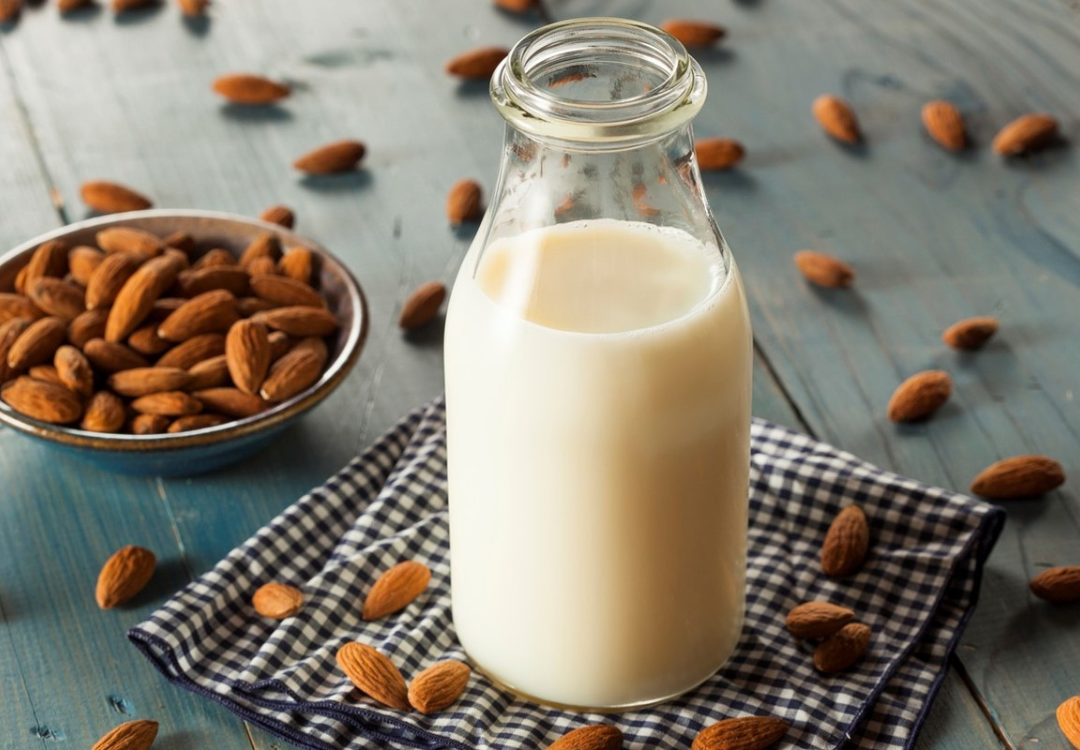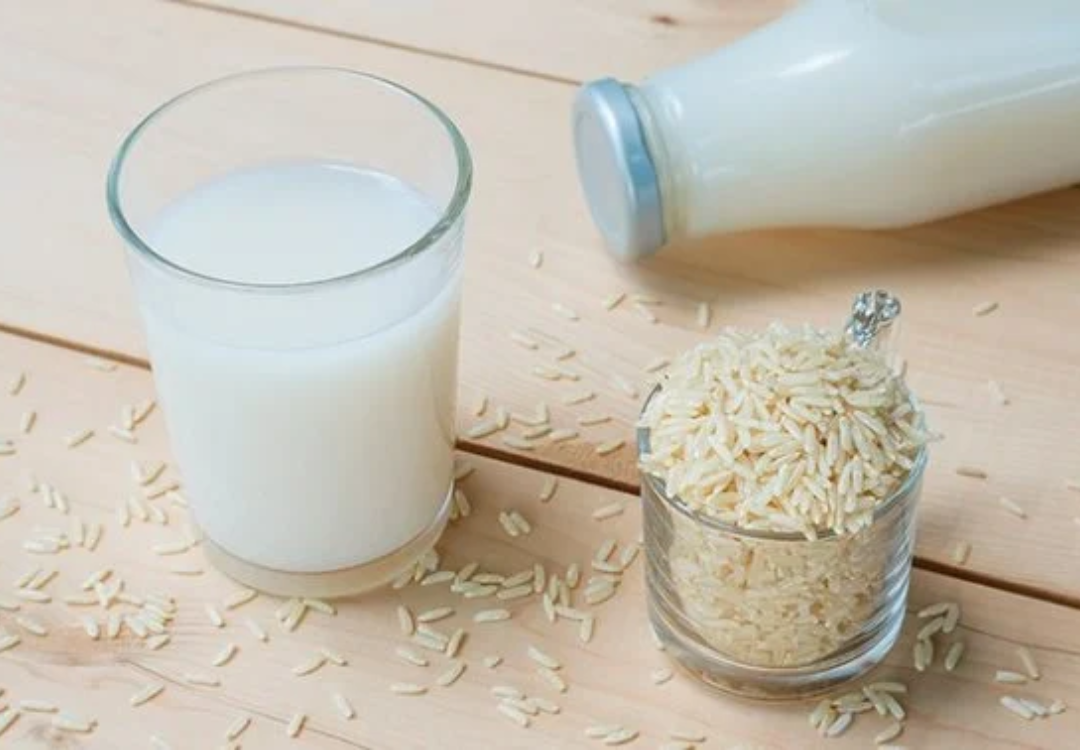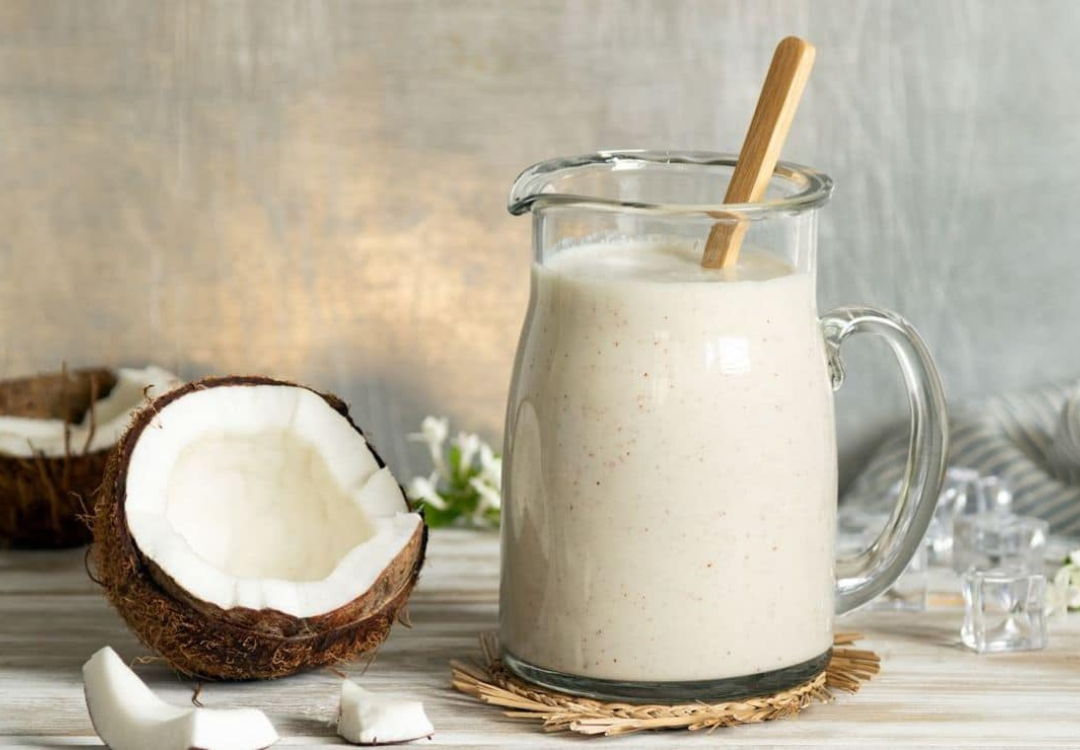
In recent years, plant-based beverages have gained popularity as alternatives to animal milk, especially among those seeking healthier options, those who are lactose intolerant, or follow a vegan diet. However, not all options available on the market are equally healthy. Some contain added ingredients that may counteract their nutritional benefits. In this note, we present a ranking of the least recommended plant-based beverages for your health, based on their nutritional content and additives.
1. Almond Milk with Added Sugar

Although almond milk is one of the most common options, many commercial versions include a high amount of added sugar to improve its flavor. This can lead to excessive sugar consumption, which contributes to problems such as weight gain, insulin resistance, and an increased risk of type 2 diabetes. Additionally, almond milk has a low protein content, which can be a disadvantage for those looking for a protein source in their diet.
2. Rice Milk

Rice milk is another popular option, but it is one of the least recommended due to its high carbohydrate content and low protein levels. This makes it a drink that can quickly raise blood sugar levels, making it less suitable for people with diabetes or those looking to maintain stable energy levels. Additionally, rice has been found to contain traces of arsenic, raising safety concerns when consumed in large amounts or over a long period.
3. Highly Processed Soy Milk

While soy is an excellent source of plant-based protein, the more processed versions of this beverage may include artificial additives such as emulsifiers and thickeners, in addition to sugar. Some studies have suggested that excessive consumption of highly processed soy products could have negative effects on hormonal health. Moreover, some people may have a sensitivity to soy, which can trigger adverse digestive reactions.
4. Coconut Milk with Artificial Sweeteners

Unsweetened coconut milk can be an acceptable option, but those containing artificial sweeteners and additives are often harmful to health. These sweeteners can alter the body’s metabolism, negatively affecting gut microbiota and triggering cravings for sweet foods. Additionally, coconut milk is high in saturated fats, which could pose a risk if consumed in excess.
5. Oat Milk with Added Vegetable Oils

Oat milk has become very popular for its mild flavor and creamy texture, but many commercial versions contain added vegetable oils, such as sunflower or canola oil. These oils can be pro-inflammatory if consumed in excess, which could contribute to health issues such as cardiovascular diseases. Additionally, oat beverages are often fortified with calcium and vitamins, but sometimes the bioavailability of these nutrients is low, limiting their actual benefit.
Conclusion
While plant-based beverages can offer an alternative to animal milk, it is essential to read labels and choose those that do not contain unnecessary additives or high amounts of sugar. Opting for unsweetened versions with natural ingredients can make a big difference in the nutritional quality of the drink you consume daily.
You can now read the most important #news on #eDairyNews #Whatsapp channels!!!
🇺🇸 eDairy News INGLÊS: https://whatsapp.com/channel/0029VaKsjzGDTkJyIN6hcP1K
✅ At eDairy Market we have all the dairy categories, all the products and all the companies. We represent you.
✅ Power your business through eDairy Market:
- Your microsite with products, brand and domain of your company at a minimum cost.
- You will be able to sell your products and we do not charge you commission per sale.
- Now you can sell your Products, Ingredients and Dairy Machinery in English, Spanish, Portuguese and Mandarin Chinese.
✅ Create your own online store in a super easy way:

























